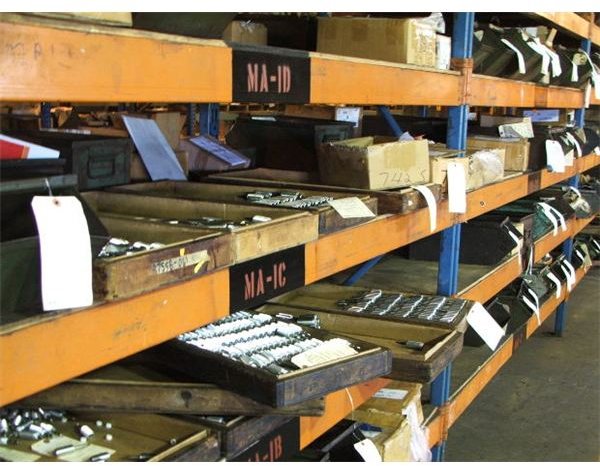Learning How Is Inventory Handled When Closing a Small Business
Going Out of Business: What to Do With Equipment and Supplies?
The decision to shut down a small business may have an air of finality about it, but the truth is that closing a small business often ends up opening a whole can of financial and logistical worms. All of a sudden, business owners may find themselves scrambling about trying to cover unpaid financial obligations, end vital business contracts, and collect on unpaid customer accounts.
One area that will require consideration when closing a small business is how the unused inventory and supplies will be handled. For those businesses with significant inventory stores, such as retail operations, or those that rely on expensive equipment, figuring out how is inventory handled when closing a small business as well as getting rid of equipment can be a real headache. Fortunately, there are several avenues business owners can take to relieve themselves of unwanted inventory.
Liquidating Tips For Closing a Small Business
As hinted to above, the term “inventory” is used pretty broadly in this context. It does not just include all your businesses’ products for sale, but also includes any tools, equipment, and supplies in the company’s possession. The following are some common types of inventory that would need to be dealt with when closing a small business:
- Products for sale
- Raw goods used for product production or the delivery of a service
- Tools, equipment, and appliances
- Office furniture
- Office supplies
- Computers and other electronic devices
- Company vehicles
Getting Rid of Unused Inventory When a Small Business Closes
Business owners have several options when it comes to liquidating a company’s physical assets.
- Hold a “Going Out of Business” Sale - Also called a liquidation sale, this is the most ubiquitous technique among retail operations for getting rid of unwanted inventory. Typically, such a sale is advertised several days in advance and heavy discounts on all remaining items are offered.
- Hire a Liquidation Company - These companies, called “inventory liquidators,” will buy up unused inventory for resale. This method promises quick access to capital should it be needed.
- Conduct an Auction on the Items - There are two options for those looking to auction off their inventory and equipment. They can either do it themselves via sites such as Craigslist or eBay, or they can employ the services of an inventory auctioning company.
- Return Unused Inventory to Vendors - In some cases, small businesses that are closing may be able to return unused inventory to the vendor who supplied it–be prepared to incur core return fees if you choose this avenue.
- Sell Inventory to the New Owner - In the instance where a business is changing ownership, yet will continue to operate in a similar fashion, the current business owner could approach the new owner with an offer to buy the excess inventory at a discount.
- Give Excess Inventory to Charity - Some businesses, retail operations in particular, may want to donate some of the items to a charity. Not only will this help to unburden some of the excess products, but it will also go to help those in need.
In short, there are several methods available for those who want to know how is inventory handled when closing a small business.
Image Credit (MorgueFile)
